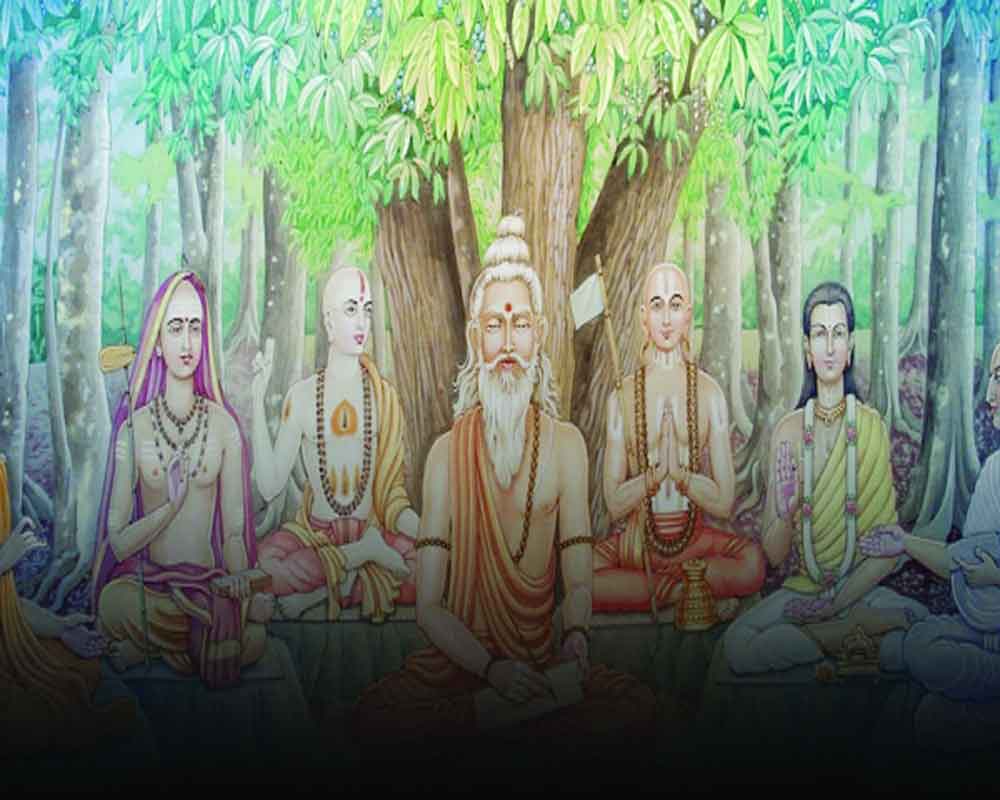Logic and epistemology are the basis of Indian philosophy
Nyaya Darshan, one of the six classical schools of Indian philosophy, stands as a beacon of logical reasoning and systematic analysis. Rooted in the pursuit of understanding the nature of knowledge and truth, Nyaya provides a framework for discerning valid inferences and reliable sources of knowledge. The term "Nyaya" itself translates to "logic" or "right reasoning," reflecting the essence of this philosophical system.
Origins and Founders: The Nyaya Darshan finds its roots in the Nyaya Sutras, attributed to Sage Gautama. Also known as Ak?apada Gautama, he is revered as the founder of the Nyaya school. Composed around the 2nd century BCE, the Nyaya Sutras lay down the fundamental principles that guide Nyaya philosophy.
Fundamental Concepts:
Pramana (Means of Knowledge): Nyaya identifies four pramanas, or reliable means of knowledge, that aid in the acquisition of valid knowledge. These are perception (pratyaksha), inference (anumana), comparison or analogy (upamana), and testimony (shabda).
Padarthas (Categories of Existence): Nyaya categorizes the fundamental constituents of reality into sixteen padarthas. These include substances (dravya), qualities (guna), actions (karma), universal (samanya), particularity (vishesha), and more. This exhaustive classification facilitates a systematic understanding of the world.
Hetu and Hetvabhasa (Cause and Fallacy): Central to Nyaya logic is the concept of ‘hetu,’ or the cause, in inference. The Nyaya Sutras meticulously outline the conditions that constitute a valid inference and identify fallacies (hetvabhasa) to be avoided.
Logical Rigor: Nyaya Darshan places a strong emphasis on logical rigour and systematic reasoning. The philosophy offers a structured approach to debate and discussion, providing rules for engaging in fruitful intellectual discourse. This logical precision contributes to the development of critical thinking skills and the refinement of intellectual inquiry.
Application of Nyaya: The Nyaya system has applications beyond philosophy, permeating various fields. Its emphasis on clear thinking and logical analysis has found relevance in law, debate, and the sciences. The Nyaya Sutras, with their detailed exploration of valid inference, have influenced the development of logical reasoning in India.
Critiques and Interactions: Throughout history, Nyaya has engaged in dialogues and debates with other philosophical schools, such as the Mimamsa, Sankhya, and Vedanta. These interactions have enriched the philosophical landscape of India, fostering a culture of intellectual exchange and mutual learning.
Relevance in Contemporary Thought: In the contemporary context, Nyaya philosophy continues to inspire scholars and thinkers interested in logic, epistemology, and the nature of knowledge. The principles of Nyaya provide a foundation for understanding and evaluating arguments, contributing to the broader discourse on rationality and reasoning.
Nyaya Darshan, with its focus on logic and epistemology, stands as a testament to the rich and diverse tapestry of Indian philosophical thought. Its systematic approach to understanding the nature of knowledge and reality has left an indelible mark on intellectual traditions, fostering a legacy of critical inquiry that transcends the boundaries of time and cultural shifts. As we delve into the intricacies of Nyaya, we unlock a treasure trove of wisdom that continues to resonate with those seeking clarity and reasoned insight in the pursuit of truth.
(The writer is a spiritual guide; views are personal)


























